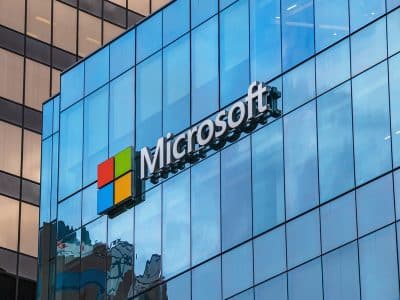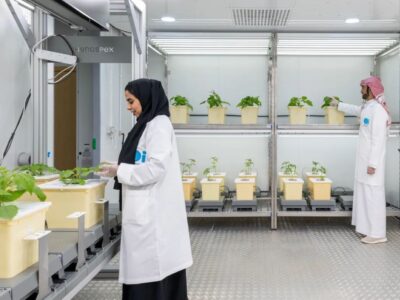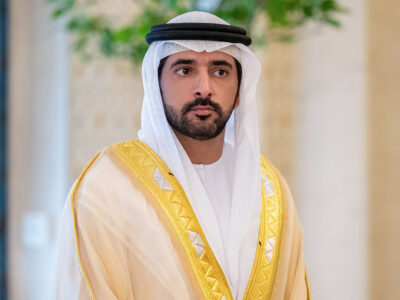HP #1
HP is now officially the world’s leading PC vendor after shipping more PCs than any other vendor worldwide for the third quarter of 2006, according to analyst figures.
Indeed, under new CEO Mark Hurd, HP is now being talked of as the world’s largest technology company overall, surpassing rival IBM.
HP certainly dominates the region’s IT market. It has had a presence in the Middle East since 1968 and it established its first direct office in the region in 1994. The firm currently employs between 670 and 700 staff.
This year the vendor announced it will be boosting its software offerings by acquiring Mercury Interactive for US$4.5 billion, a move which will double HP’s software business.
It hasn’t all been smooth sailing for HP and for Hurd however, with the firm currently involved in a scandal which has seen chairman Patricia Dunn facing criminal charges for her part in a botched investigation into a series of corporate leaks.
This year, in a bid to boost its software and service businesses, Big Blue has been on a massive spending spree, totting up acquisitions worth over US$3.64billion in August alone.
Firms it has bought include its US$1.3billion acquisition of Internet Security Systems (ISS), FileNet, which it paid US$1.6 billion for, and MRO Software, which was bought for around US$740million.
IBM has had a presence in the Middle East for over 50 years and through its regional partners it is believed to employ over 1,800 staff in the region.
The firm can also claim to be the largest exporter of IT from the region, with its Technology Development Centre in Cairo.
The company has a solid presence in the Middle East with offices in the UAE, KSA, Egypt, Lebanon, Kuwait, Morocco, Algeria, Jordan, Bahrain and Qatar as well as representation in all other countries. It has over 600 partners in the Middle East and employs 400 people in total in the region.
The vendor said its Gulf operations grew 50% in 2006, while the MEA region grew 56%.
Major deals in the past year include the provision of a network for Kuwait’s Wataniya Telecom, as well as a deal with Petroleum Development Oman to supply IP call centre solutions, and an infrastructure contract with the Saudi Post Corporation. The vendor also formed a strategic consultancy agreement with the National Bank of Kuwait and PWC Logistics during the year.
Two years ago it began an aggressive buying spree and has made a number of high-profile multi-billion dollar acquisitions of rivals such as PeopleSoft, Siebel and JD Edwards.
Added to these it has made a number of other buys in the past year or so, including Retek, which specalises in the retail sector, and I-Flex, which provides banking software.
However this year Oracle also announced that it will continue supporting JD Edwards, PeopleSoft and Siebel applications beyond its previously stated deadline of 2013.
The company has an impressive headcount of 600 in the Middle East and Africa region, where it has been operating directly for the past 20 years.
This year it announced deals with Etisalat, Dubai Sports City and Qatar Steel, among others.
Its Windows operating systems still clearly dominate the market, but Microsoft’s failure to deliver the next-generation of the OS — Vista — in time for the all-important holiday buying season has hardly endeared it to its hardware partners. Office 2007 has also seen its release delayed.
Microsoft’s status as the coolest tech company has also been challenged by the rise of Google — with senior engineering staff defecting to the search giant — and Apple’s resurgence with the iPod.
This year has also seen the announcement by founder Bill Gates, the most high-profile figure in the industry and not coincidently the world’s richest man, that he is to gradually stand aside from the running of Microsoft.
However, the firm is confident that when Vista and Office 2007 do ship they will prove to be every bit as successful as their predecessors and it is also looking to recapture some of that ‘cool’ factor with the launch of products such as the Zune media player.
In the region, Microsoft continues to have a strong presence, with offices across the Middle East. Gates’ visit to Saudi Arabia just this month shows the importance the region has for the firm.
Falling profits were followed by the announcement that it plans to shed around 10,500 employees worldwide by the middle of next year, and sell off a number of its businesses.
Further, its biggest customer Dell ended its monogamist relationship with the chip giant and is now using chips supplied by its biggest rival AMD.
Next year can only get better. Intel has already started the ball rolling with the release of its Core 2 Duo microprocessors, based on its new Core Microarchitecture chip design, and VPro desktop PC management platform this year.
The full impact of these products is unlikely to be felt until 2007, but next year does look promising for the world’s biggest chipmaker with Quad core and VPro on the way.
The team has been focusing a lot of attention on Saudi Arabia, with key executives visiting the Kingdom to meet with local partners throughout the year.
The electronics vendor’s mobile division has also been eyeing up Saudi and in August announced it is to massively expand its presence in the Kingdom’s mobile channel sector, having finalised deals with new Saudi distributors. There was also speculation over the possibility of Samsung entering into agreements with UAE-based telcos Du and Etisalat, while reports suggest the vendor may establish a research and development facility in the UAE.
There was more bad news in store in the second half of the year, when after almost three years as the world’s leading PC manufacturer, rival HP snatched the title back. According to analyst group Gartner, HP shipped 9.8 million units worldwide during the third quarter, just 28,000 more than Dell.
In an effort to turn things around and expand its product portfolio Dell ended its exclusive relationship with chipmaker Intel and started using rival AMD’s processors, first in its servers, then desktops, and then notebooks.
It wasn’t so much cracks as a ball of flames that led to Dell’s involvement in one of the biggest stories of the year. In what was by far the biggest battery recall by a single vendor in history, Dell pulled 4.2 million lithium-ion notebook batteries made by Sony from the market because they could potentially, and in some cases did, cause notebooks to catch fire.
Last year, according to analyst Gartner, the vendor topped worldwide sales for anti virus software, dominating 53.5% of a market that was worth US$4billion in 2005.
There is of course a lot more to Symantec than just security these days, with the firm having a strong focus on availability of data through its Veritas line. The US$10.4billion merger was successfully completed last year.
Symantec has worked in the region for eight years exclusively through partners and has a headcount of 60 employees in the Middle East that are employed within the company’s different operations — enterprise, consumer, SMB and consulting.
It operates within 15 countries across the Middle East — Algeria, Bahrain, Egypt, Iraq, Jordan, Kuwait, Lebanon, Morocco, Oman, Pakistan, Qatar, Saudi Arabia, Tunisia, the UAE and Yemen.
Initiatives Symantec has undertaken across the region include a strategic alliance with Etisalat, work for the Muscat Municipality and Yemen telecommications firm SabaFon.
Xerox experienced notable growth in the Middle East over the last year, the vendor said, due to the ramping up of its channel strategy and numerous product releases.
Just before the turn of the year Xerox increased its footprint in Saudi Arabia through a deal with the Kingdom’s National Commercial Bank (NCB) that saw it take over control of all the bank’s document management.
The NCB deal was followed in February by an agreement between the printing vendor and Spectrum Digital Print Solutions for the first deployment of Xerox’s iGen3 digital production press solution in the region.
Xerox also acquired information software provider XMPie for US$54million this year.
The company, which is one of the world’s largest IT management software providers, currently has offices or direct representation in Bahrain, Kuwait, Saudi Arabia, and two UAE sites, employing over 100 professionals across the Arab countries and in Pakistan.
In terms of customers it has over 800 installations across the Arab world, including enterprises, government agencies and SMBs. Initiatives in the past two years include the opening of a tri-lingual customer call centre in Lebanon.
Earlier this year CA struck a deal to acquire application management solutions vendor Wily Technology in a deal worth US$375million.
While the firm has managed to put a long-running accounting scandal behind it, earlier this year it said it was cutting 1,700 jobs to reduce expenses.
With its focus on the booming notebook sector, continued push into emerging markets and indirect channel strategy, Acer managed to shield itself from some of the factors contributing to the dismal year rivals experienced, posting worldwide computer shipment growth of 40% for H106, according to Gartner. In the Middle East especially, Acer saw solid growth in the UAE, Saudi Arabia and other Gulf countries, as well as impressive growth in Egypt and Turkey.
The vendor has been especially proactive in the public sector, winning deals with the Jordanian, Omani and Bahraini ministries of education worth in the region of US$15million.
Acer also won a number of big deals in the private sector. Its most high profile deal, worth US$6million, will see carrier Emirates Airline replace all of its desktops worldwide.
Toshiba said it expects combined growth of around 75% year-on-year when it enters the Iraqi and Yemeni markets with its range of notebooks.
The vendor also upped its presence in East Africa through a partnership with Al Futtaim aimed at boosting both sales and service availability in the emerging markets of Kenya, Tanzania and Uganda. The agreements have already begun to bear fruit, with Toshiba winning a deal to supply organisers of the Asian Games in Doha with 200 of its notebooks and another deal with oil giant Sabec. The UAE Higher Colleges of Technology (HCT) also signed a US$5.4million deal with Toshiba for its tablet PCs.
The firm now boasts over 250 customers, which include some of the region’s biggest names such as Aramco, the Islamic Development Bank and Saudi Electricity Company.
It has a headcount of 100 in the region with headquarters in Jeddah and offices in Riyadh, Dharan and Dubai.
The firm has pledged to grow its customer base in the region even further by focusing on the public sector, SMB and financial services sector.
Worldwide SAP has announced it will work on developing industry-focused solutions and plans to develop a portfolio of over 650 qualified solutions.
Its main business strategy however is to drive the development and adoption of enterprise software based on service orientated architecture (SOA).
Today, Nokia has more than 450 employees in the region across 12 markets as well as an active presence in Ethiopia, Libya and Sierra Leone.
It continues to demonstrate its commitment to the MEA region by providing localised applications, such as non-Western calendars as well as multiple-language interfaces.
With respect to networks, Nokia works with many of the largest operators in the region including MTC Vodafone in Bahrain, Mobilnil in Egypt, MCI in Iran, Atheer Telecom in Iraq, MTC Vodafone and Wataniya (HSDPA) in Kuwait.
In March this year, Nokia also won a major mobile infrastructure contract, worth at least US$190 million, with the UAE’s second operator, du.
The purchase of de-duplication specialist Avamar Technologies for US$165million this month was the twelfth buy the storage giant has made in the last year and follows the purchase of one of the biggest names in the data security sector, RSA Security for US$2.1 billion back in July.
In the two months leading up to the RSA buy, EMC also acquired storage management software companies ProActivity and nLayers, protection vendor Kashya for US$153million and Interlink Group.
Closer to home, this year EMC split with its regional partner of 16 years, STME, under acrimonious circumstances, with EMC claiming that the two companies’ regional strategies had become ‘incompatible’.
Once the deal is completed, Symbol — which provides a range of products, including scanners and RFID readers, wireless infrastructure and mobility management — will become a wholly-owned subsidiary of Motorola and will form the cornerstone of its Networks and Enterprise business.
The Symbol acquisition will only strengthen a strong regional presence. Motorola does not break down its regional sales, but claims to have tripled its sales in the Middle East and Africa over the past three years. It has 1, 000 employees and at least two channel partners in each country in the region.
The digital appliances sector also showed a strong recovery, registering a 24% growth while the digital media division and digital display segment grew by 19% and 5% respectively.
In October LG announced it was considering establishing a new regional office in Jordan servicing the Levant markets. The deal calls for LG to establish new regional headquarters in Amman servicing the countries of the Levant.
Currently LG services these markets from its regional headquarters based in Dubai, with an additional office in Tehran that caters exclusively to the lucrative Iranian market, one of LG’s largest regional markets.
McNealy was replaced by company president Jonathan Schwarz, who wasted little time in announcing that the vendor was axing 5,000 jobs worldwide and scaling back on research and development (R&D).
It was hardly all bad news for Sun however. The vendor made a major effort to re-establish itself in the storage arena this year with an expansion of the ‘Sun StorageTek’ brand following its acquisition of the rival firm for US$4 billion last year.
In both the storage and server markets, Sun showed signs of improvement, being the only one of the four big server players to post positive worldwide growth in Q206, according to market research firm IDC, while Q2 storage revenues also rose by over 15% year-on-year.
Regionally, Sun began on an aggressive expansion strategy in Saudi Arabia, appointing Hani Salman as country manager for the Kingdom, where it will focus on key verticals such as banking, telecoms and government.
The Japanese vendor’s focus is on protecting against different kinds of malware and network worms and in 2005 it posted record consolidated net sales of U.S. $621.9 million, representing an annual growth rate of 18%. According to research house Gartner the total worldwide market for antivirus software was worth a staggering US$4 billion in 2005 with Trend Micro holding a 13.8% market share.
It has operated directly in the Middle East for five years and through partners for eight years and is currently present in 14 countries in the region.
The firm has worked on a number of major local projects including one for the Bahraini Government via its Central Informatics Organisation.
Another major customer is Mercator — the IT division of the Emirates Group, which this year deployed Trend Micro’s Gateway Scanning for Viruses and Spam solution.
The deal cements Adobe’s strong position in the computer graphics industry and could yet have an impact on the future direction of the entire software sector. Certainly we can expect to see next year strong competition with Microsoft in the emerging market for online application development — particularly against Microsoft’s Vista, the next generation of the Windows operating system.
In September of this year Adobe rolled out Acrobat number 8, which it claims allows users to more effectively engage with the information held in PDF documents and forms.
The company has had a presence in the Middle East for several years but said this year it is considering opening a Middle East office in Dubai.
Avaya currently employs over 50 people in the region and plans to increase this number in the first half of next year as it opens more regional offices to cater for the strong uptake of communications solutions.
Recent contract wins in the region for Avaya include Dlala Holdings, for whom Avaya is providing an IP-based contact centre system, and the University of Sharjah, which has deployed an Avaya-based IP telephony network and phones for its students and faculty staff.
Operating in the region since 2000, Avaya has held a direct presence in the region in the UAE and Saudi Arabia since 2003. It also operates in Egypt, Lebanon, Jordan, Qatar, Yemen, Oman, Bahrain and Pakistan.
Its products for home users include McAfee Total Protection, McAfee VirusScan and McAfee SiteAdvisor.
For SMB customers McAfee provides integrated solutions to protect desktops, networks and servers from virus outbreaks, spyware, adware and spam.
Enterprise customers are protected through McAfee’s ten-step Security Risk Management (SRM) process, providing policy creation, protection strategies and compliance reviews.
This year McAfee has made a number of acquisitions to boost its offerings, including most recently Onigma, a privately-held provider of protection solutions
Operating in the UAE, Saudi, Egypt, Lebanon, Jordan, Oman, Bahrain, Qatar, and Kuwait, McAfee has a team of ten, led by regional director Patrick Hayati.
Of note were FSC’s deals with Etihad on the T&A SkyBook notebook — to replace much of the paperwork the carrier’s 325-plus pilots have to take with them on every flight — and with the Abu Dhabi Company for Onshore Oil Operators (ADCO).
FSC also expanded its presence in the region with the opening of its first assembly plant outside of Germany in the UAE’s Jebel Ali Free Zone.
FSC was hit hard this year by the slowdown in Western Europe’s PC market and by EU regulations such as the directive on the Restriction of Hazardous Substances (RoHS). FSC is looking at cost saving measures to ensure profitable growth next year, but has yet to outline in detail what steps it will take.
Like its rival, AMD has begun to move away from just making processors to developing platforms and as part of this strategy the chipmaker snapped up Canadian graphics chip maker ATI Technologies for US$5.4 billion, turning itself into a leading supplier of graphics technology overnight.
Now the quad core race is on and the industry is waiting to see just how AMD’s four cores on a single silicon approach will perform against Intel’s two dual-core chips offering.
Perhaps the firm’s masterstroke will prove to be the signing of an alliance with Microsoft to work together on offering voice over internet protocol (VoIP) solutions, enabling it to gain ground on rival Cisco in this important space.
It hasn’t all been good news — in July CEO Mike Zafirovski said the firm was cutting 1,900 jobs worldwide.
Nortel’s Middle East presence is strong, with a headquarters in Dubai, as well as offices in Egypt and Saudi Arabia. It employs 50 people in the region.
Deals over the last year in the region for Nortel include contracts with Dubai’s Roads and Transport Authority and with Future Entertainment Works in Saudi Arabia.
Nortel sells directly to carrier customers and indirectly through its 25-strong network of regional partners.
This year in the region, the vendor launched a new channel partner programme, the Lenovo Partner Network, in April — a move that further distances itself from IBM. And a month later it opened up two offices in Saudi Arabia, which Lenovo said is a key focus for it going forward. The firm has set up a spare parts hub in the UAE for its ThinkPad and ThinkCentre products. The new hub will operate as a centralised resource, ensuring that critical parts are stocked locally and are readily available to Lenovo partners.
China remains Lenovo’s most important market — accounting for 39% of the company’s total revenue — with an increase in sales of around 30% in Q1, but shipments in Europe, the Middle East and Africa (EMEA) decreased 12%.
In its fiscal second quarter Lenovo’s consolidated revenue increased 1% year-on-year to US$3.7 billion.
Lenovo was one of the vendors caught up in this year’s battery saga, recalling 526,000 of its Sony lithium-ion batteries at the end of September after reports surfaced of a notebook going up in flames at Los Angeles International Airport in the US.
As part of this expansion, Canon Middle East also rolled out Cognos’ latest business intelligence (BI) solution over the summer to more effectively monitor the company’s process and performance efficiencies.
The electronics vendor undertook a pilot implementation at a cost of around US$60,000 of the Cognos 8 Business Intelligence suite for 25 users with plans to expand it to hundreds of users as the system grows.
With the Dubai office looking after at least 36 countries across the Middle East and Africa region, the Cognos solution is likely to come in useful.
Globally, Canon enjoyed a solid year, but had to issue a product advisory earlier this year across EMEA that several of its photocopiers could potentially pose a fire risk.
The advisory came in September after the firm discovered a faulty connection related to the internal power cord of the copiers’ fixing unit heaters.
The US company is particularly enjoying success in the Middle East, the region where it is experiencing its fastest growth. 3Com now operates in every country in the Gulf, Middle East and North Africa although it says the Levant region remains a challenge.
It is still keen to expand its operations in the Middle East, however, and is planning to increase its headcount in the region in the near future, adding ten extra members of staff to its current 20 employees.
3Com has focused on winning customers in the education, healthcare and government sectors but it is now targeting the telecommunications and financial services industries.
It has won a number of key deals over the past year, including being selected by the Arab National Bank in July to overhaul its information network and security infrastructure.
The company has invited proposals for joint product development of Micro Piezo technology, which is present in the Epson Stylus Photo and Stylus Pro range of inkjet printers.
The vendor has also been targeting the consumer electronics market and stated that it expects the segment to record a rapid increase in demand for multi-function devices (MFD) during 2006. Multi-function devices accounted for 44% of Epson’s total inkjet unit shipments in its 2005 fiscal year, which it expected to rise to 50% in 2006. Epson said this would drive the growth of the computer product manufacturing industry and bring users the benefits of better designed, feature packed and more affordable models of products.
Despite these initiatives, figures from analyst firm Gartner show EMEA unit sales of printers — which includes page printers, copiers and multifunction products (MFP) — slipped 15% in the first half of 2006 to 2.68 million units, behind both HP and Canon in the market.
The company, which supplies next generation telecoms network solutions, serves 28 of the world’s top 50 operators in over 100 countries worldwide. In this region the leading fixed wireless and telecom operators are all its customers.
Its product portfolio includes a number of wireless products, network products, optical network and data communication value added services and mobile and fixed terminals.
Major wins over the past year in the region for Huawei include being selected by Saudi Arabia’s Mobily for the construction of its UMTS network and by Maroc Telecom to supply the second phase of its internet protocol TV project.
Huawei is also helping UAE telecom provider Etisalat with the construction of next generation network technology and was recently selected by the telecom operator to build its nationwide UMTS/HSPA network in the UAE.
Huawei, which has been operating directly and through partners in the region since 1999, employs more than 1,900 employees in the Middle East and North Africa, of which 60% are local staff. It has regional offices in Saudi Arabia and Egypt and more than 128 partners in the region. It operates in 28 countries in the region in total.
It is now the second-largest security vendor in the industry by revenue, according to a report by Infonetics Research, with leadership in the SSL VPN and high-end firewall markets.
The company, which supplies IP network platforms, started operating in the Middle East in February, 2004 and now has offices in Saudi, Dubai and Egypt and employs more than 50 employees. It has more than 40 partners in the region and approximately 127 resellers.
Juniper designs and sells internet protocol (IP) routers for private and public access networks as well providing network traffic management software and security products and support services.
It claims to have a wide range of service providers and enterprise customers in the region, and strong market share among service providers in Egypt, Saudi Arabia, the UAE and Pakistan. It won major contracts with Etisalat as well as Saudi Telecom, Cedarcom in Lebanon, and Jordan Telecom.
Lexmark also opened an office with a product demonstration room at Dubai Internet City (DIC) and signed a deal with regional distributor Tech Data to help it to capitalise on what it said was soaring demand for printers in the Middle East.
Lexmark said its decision to open regional offices in places such as Riyadh, Saudi Arabia, was a reflection of the importance of the region to the company. It claimed sales of colour printers are estimated to increase at an annual growth rate of 30% through to 2008.
In the first half of 2006 Lexmark’s printer, copier and multi-function printer unit shipments rose 4% in Europe, Middle East and Africa (EMEA) compared to the first half of 2005, slightly lower than the growth of the entire printer market, according to market research firm Gartner.
Having long been bitter rivals, this month’s announcement that the two firms are combining to promote interoperability solutions between Windows and Novell’s SuSe Linux caused considerable surprise. The small matter of the US$400million that Microsoft is paying Novell as part of the deal may have helped to make the deal more attractive to Novell.
Regardless, the future looks brighter for the company, which also announced plans last month to collaborate with IBM on a combined IBM-Novell stack — the Integrated Stack for SuSe Linux Enterprise.
It is certainly time for some good news for Novell, which rang the changes in July by re-shuffling its management team. At the time president and chief operating officer Ron Hovsepian stepped up to the CEO role, replacing Jack Messman.
In October last year Novell announced a 20% cull of its 5,800 workforce to make up for ailing financial results.
SAS offers data integration, intelligence storage, advanced analytics and traditional business intelligence applications within an enterprise intelligence platform.
Last year the company achieved overall revenue of US$1.68billion — 24% of which it invested in research and development of its products.
SAS has operated in the Middle East since 1994 and has around 60 regional customers.
An IDC report published in July this year — Worldwide Business Intelligence Tools 2005 Vendor Shares — placed SAS second in the business intelligence market after its 2005 BI revenue increased by 13.2% to US$582.4million.
The new company, which is expected to start operating at the beginning of 2007, will be 51% owned by Gigabyte and 49% owned by Asustek with an initial capital of US$244million. Despite the pressures, Asustek shifted some 52 million motherboards worldwide in 2005 and expects that figure to hit 60 million for 2006.
Up to September this year the firm had recorded sales of US$3.3 billion globally, an increase of 36% on the same period last year.
The vendor joined the notebook ‘race’ against rival Acer at the beginning of this year by teaming up with Italian car manufacturer Lamborghini on a new line of laptops.
The vendor also cited research by American group BNA, which placed it as the number three manufacturer of LCD monitors in the Middle East region. The Taiwanese firm has operated an SKD facility with partner Irannara in Iran since February 2005.
This summer BenQ launched the BenQ-Siemens mobile handset brand in the Middle East, resulting from the takeover of Siemens Mobile.
This year wasn’t all good news, BenQ Mobile, a subsidiary of Taiwan’s largest mobile phone maker, filed for insolvency protection in October after its parent firm cut funding.
For its 2006 fiscal year ending June 30, the hard drive vendor reported revenue of US$9.2 billion — of which US$279million was from Maxtor based products — and net income of US$840million. US$2.53 billion of those revenues came from its fourth fiscal quarter.
Following the completion of that deal, Seagate Middle East management team made changes to its channel structure, stating a total of six distributors would now sell the entire portfolio of Seagate and Maxtor branded products.
The six distributors became five in November when Seagate took the dramatic step of dropping eSys as a global distribution partner.
Apple posted revenue of US$4.37 billion and a net profit of US$472million for its 2006 fiscal third quarter ending July 1. These results compare to revenue of US$3.52 billion and a net profit of US$320 million for the same period last year.
The Apple Worldwide Developers Conference (WWDC) saw the vendor complete the shift to Intel processors that started around a year ago. The firm has also strengthened its ties with Microsoft. Attendees to the developers conference were also given a sneak peak at Apple’s new ‘Leopard’ operating system (OS). Apple did find itself caught up in Sony’s infamous battery pack recall, which saw Apple pull around 1.8 million notebook batteries from the market this year.
All of this combined to force Sony into slashing its profits outlook by over half in October. The vendor cut operating income for its current fiscal year by 62% and net profit by 38%. It now estimates operating profits for its fiscal year ending March 31, 2007, to be US$421million, down from the US$1.1billion it forecast in July.
Much of its troubles relate to the firm’s infamous lithium-ion batteries, of which almost 10 million have now been recalled, affecting around ten notebook vendors including Apple, Dell, Lenovo, Toshiba and Sony itself.
Sony said it had set aside approximately US$429.1million for costs it expected to incur in relation to the recall.
Sony said revenue in the UAE this year is likely to reach around US$300million.
In September, the firm said its three primary product lines — Aqualogic, WebLogic and Tuxedo — will all eventually use a common software foundation called MicroServices Architecture, which will make it easier for customers to build and modify applications with BEA’s tools and server software. The company intends to have all of its products based on this architecture by 2008.
The company is also introducing a new collaboration product, WorkSpace 360°, which is meant to be a single application where technical and business people with different roles can collaborate. BEA’s customers in the region include Qatar National Bank, which built an e-business platform to provide a customer portal for customers.
With Schneider already having a strong presence in the intelligent power protection space through its subsidiary MGE UPS Systems, the deal could create a true “powerhouse”, if you pardon the pun.
Founded in 1981, APC’s sales last year were a massive US$2billion, with the Fortune 1000 company offering a variety of products for network critical physical infrastructure including infraStruXure — its IT architecture for on demand data centres and the NetBotz range of physical threat management products.
Prior to the Schneider takeover, the company had announced plans to revamp its regional set-up as part of a series of actions designed to improve its support infrastructure in the Middle East. This overhaul is set to provide the foundation for the company’s regional expansion, with Dubai a major focus.







